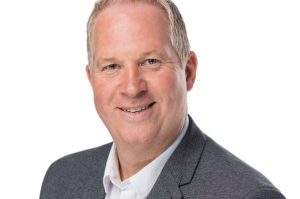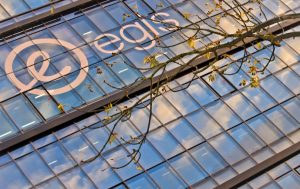Interest rates held again

THE Bank of England kept the cost of borrowing steady by holding the base rate at 0.5%.
It also refrained from expanding its quantitative easing plan – in effect increasing the money supply into the economy – from £125m.
The Bank has been prepared to inject bilions of pounds into the economy by buying assets such as government securities and corporate bonds.
It had been widely expected that the Monetary Policy Committee would continue to hold interest rates at an all-time low for a third consecutive month as assessments continue to be made about whether the country is through the worst of the recession.
Commenting on today’s decision by the MPC, Gary Lumby, president of Leeds Chamber of Commerce, said: “The Bank of England grabbed headlines last month by announcing that it was to increase the size of its quantitative easing operation by £50bn to £125bn, so today’s decision to leave interest rates at an historic low of 0.5% comes as no surprise.
“There are some promising signs that quantitative easing measures, together with other stimuli, are beginning to moderate the pace of decline and interest rates remaining low is a key requirement as far as our members are concerned.”
Nimble Thompson, chairman of the Institute of Directors in Yorkshire and the Humber, said: “As expected, the Bank of England has taken the only realistic course of action and held the interest rate at 0.5%.
“In the current climate it is difficult to envisage the rate changing in the foreseeable future. Low interest rates continue to be vital for Yorkshire business as we battle on through the economic difficulties.”
Ron McMillan, northern chairman at PricewaterhouseCoopers, said a hold had been expected.
We expect the Bank of England to remain in ‘wait and see’ mode for a couple of months while it awaits more evidence on how effective the monetary and fiscal loosening already in the pipeline is proving to be,” Mr McMillan said.
“It can then decide if any further quantitative easing is needed beyond the £125bn of asset purchases already in progress.
“The rise in the pound in recent weeks will, if it persists, keep import prices down and reinforce the downward trend in inflation that we expect in the short term.
“This supports our view that we are still a year or so away from the point where the MPC is likely to start raising interest rates.”
Ian McCafferty, the CBI’s chief economic adviser, said: “With the quantitative easing programme now in its fourth month, the level of interest rates is not currently the main concern of the MPC.
“There are some encouraging, if tentative, signs that the quantitative easing programme is reducing the downside risk to the economy, but monetary and lending conditions remain fragile. The Bank is likely to need to continue to use the quantitative easing tool in coming months.”
Professor Peter Spencer, of the University of York and chief economic advisor to the Ernst & Young ITEM Club, said: “As expected, the Bank of England’s Monetary Policy Committee has left interest rates unchanged at 0.5% for the third month in a row.
“Today’s interest decision was a non-event – with interest rates at a historic low of 0.5% and an announcement last month that the QE programme would be expanded to £125bn, the Bank of England had no surprises up its sleeve.
“More QE is possible in the coming months if there appears to be little progress on stimulating nominal demand – the Bank may step up its asset purchases and ask the Chancellor to authorise more money.
“With inflation unlikely to be a major concern thanks to the increase in the margin of spare capacity in the economy, ITEM expects interest rates to be kept at 0.5% over the course of this year.”
Keith Steventon, head of research at BNP Paribas Real Estate, said: “It is of no surprise that the Bank of England has kept interest rates at 0.5%. Raising interest rates at a time where households are struggling and investment is at an all time low will only elongate the path for recovery.
“We need interest rates to stay low until the economy is on an upward trend. It is unlikely the economy will bounce back to a ‘v’ shape recovery because UK fortunes are tied to the world economy that is also in recession and will take time to recover.”







